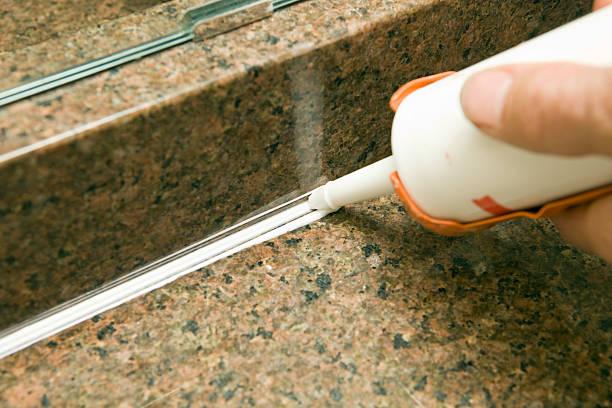As infrastructure continues to develop at a rapid pace, the need for durable, reliable, and cost-effective road maintenance solutions becomes more critical than ever. One essential component of this maintenance is the use of asphalt joint sealer—a specialized product that plays a key role in preserving pavement life and preventing structural failure. Whether you're working on highways, runways, parking lots, or bridges, an effective flexible joint sealant can make all the difference in performance and longevity.
What is Asphalt Joint Sealer?
Asphalt joint sealer is a rubberized or bitumen-based compound used to seal the joints and cracks in asphalt pavement. These joints are intentionally created to allow for the natural expansion and contraction of pavement materials due to temperature changes, traffic load, and weathering. However, if not properly sealed, these joints can become entry points for water, debris, and chemicals—leading to premature deterioration.
A high-quality flexible joint sealant not only seals these joints but also moves with the pavement, maintaining integrity even under dynamic conditions.
Why Use Asphalt Joint Sealer?
The benefits of using an asphalt joint sealer go far beyond just filling cracks. It is a proactive maintenance strategy that offers the following advantages:
1. Prevents Water Infiltration
Water is one of the leading causes of pavement failure. A good asphalt joint sealer acts as a barrier, preventing water from seeping into the sublayers of the pavement.
2. Reduces Cracking and Surface Damage
By allowing movement in the pavement without compromising the seal, a flexible joint sealant reduces the likelihood of surface cracks and potholes.
3. Extends Pavement Lifespan
Properly sealed joints minimize the risk of structural failures, thus reducing the frequency and cost of major repairs.
4. Improves Safety and Ride Quality
Smooth and crack-free roads contribute to better driving conditions and overall road safety.
5. Cost-Effective Maintenance
Using asphalt joint sealer in routine maintenance is far more affordable than full-scale road reconstruction.
Types of Flexible Joint Sealants
There are several types of flexible joint sealant formulations used in road construction and maintenance, including:
-
Hot-Applied Sealants: These are heated before application and provide excellent adhesion and flexibility in high-traffic areas.
-
Cold-Applied Sealants: These do not require heating and are easier to apply in small-scale or quick-repair projects.
-
Rubberized Asphalt Sealants: Offer superior elasticity and are resistant to extreme temperature changes.
-
Polyurethane and Silicone-Based Sealants: Often used in specialized applications where high flexibility and UV resistance are required.
Choosing the right sealant depends on the project requirements, climate conditions, and expected traffic load.
Application Areas for Asphalt Joint Sealer
Asphalt joint sealer is widely used across various types of projects, including:
-
National and regional highways
-
Airport runways and taxiways
-
Urban roads and parking areas
-
Bridge decks and expansion joints
-
Industrial and commercial zones
These sealants are crucial for preserving both newly constructed pavements and rehabilitated surfaces.
Best Practices for Applying Asphalt Joint Sealer
To ensure optimal performance, it’s important to follow best practices during the application of flexible joint sealant:
-
Clean the Surface Thoroughly: Remove dust, debris, and moisture to ensure proper adhesion.
-
Use Proper Equipment: Depending on the sealant type, use hot-pour kettles or caulking guns for accurate application.
-
Control Temperature Conditions: Most sealants work best within a specific temperature range.
-
Apply Evenly: Avoid overfilling or underfilling joints to maintain uniform performance.
-
Allow Curing Time: Let the sealant set properly before opening the road to traffic.
Conclusion
The use of asphalt joint sealer is essential for extending the life and functionality of paved surfaces. Whether you are a contractor, civil engineer, or maintenance manager, incorporating a reliable flexible joint sealant into your project can lead to significant savings and enhanced performance.
As infrastructure demands increase, investing in quality joint sealing solutions ensures long-term durability and safety. Choosing the right product and following proper application techniques will provide a solid foundation for efficient pavement management.
